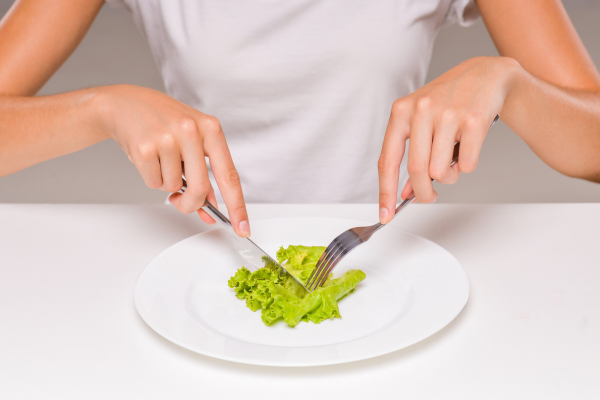The risks of restrictive weight loss diets to your health at menopause
- Aoife McCormack
- Aug 29, 2025
- 4 min read
Introduction
Menopause marks a natural stage in a woman’s life, usually between 45 and 55 years old, defined by 12 consecutive months without a period. This transition can bring side effects such as hot flushes, sleep disturbances, irritability, and weight gain (1). The decrease in oestrogen during menopause contributes to increased fat storage, making weight harder to shift. This often leads many women to search for quick fixes. Restrictive weight loss diets, such as severely limiting calories or cutting out entire food groups, may seem like an easy solution for weight loss, but they pose significant health risks (2).

Why Restrictive Weight Loss Diets are ‘Appealing’
Restrictive diets may seem like a good fix for menopause-related weight gain. They often lead to a lower number on the scales, providing a sense of control and come with simple rules such as “avoid sugar” or “cut carbs” or “stay under X calories”. These benefits make restrictive weight loss diets especially appealing when other methods seem slow or complicated. However, much of the early weight loss may come from water or muscle rather than fat, and the longer-term effects of these diets can cause further health issues (3).
The Health Risks of Restrictive Weight Loss Diets at Menopause
Nutrient deficiencies
Restrictive diets can result in low levels of key vitamins and minerals. These deficiencies can often mimic or worsen menopause symptoms, making them harder to identify. For example, low iron may cause fatigue, hair loss and poor concentration, insufficient magnesium can affect sleep quality and muscle function, while vitamin B can influence mood and energy levels (4). Inadequate nutrients can also weaken immunity and cause digestive issues such as constipation.
Osteoporosis
During menopause, decreased oestrogen levels accelerate bone loss, increasing the risk of osteoporosis during this time (1). Restrictive weight loss diets can result in a lack of key nutrients such as calcium and vitamin D, and overall calories, further accelerating the loss of bone density and strength (2, 5)
Blood Pressure and Cholesterol
Balanced diets are rich in fibre, healthy fats, and essential nutrients, while limiting processed foods (3). Restrictive diets often lack variety and important nutrients, disrupting hunger cues and increasing cravings. This can lead to overeating, sometimes followed by guilt and shame, creating a harmful cycle. Over time, this pattern may increase consumption of processed foods, such as ready meals, sweets and crisps. These processed foods are often high in saturated fats, salt and sugar which cause an increase in cholesterol and blood pressure, both which are already adversely affected by menopause (5, 6).
Fatigue
A calorie-restrictive diet can leave you with insufficient energy to carry out day-to-day activities. Persistent tiredness can impair concentration, lower motivation to exercise, and reduce overall activity, further affecting health and weight. Fatigue also contributes to irritability and mood changes, compounding menopause-related challenges (7).
Muscle loss
Low energy intake from restrictive diets often results in less movement and exercise, accelerating the natural muscle loss seen in menopause. Additionally, inadequate protein intake causes the body to break down muscle for fuel. This loss may show as weight reduction on the scales but does not equate to fat loss and leaves you physically weaker, reducing metabolism and making weight management even harder (3).
Psychological effects of Restrictive Weight Loss Diets
Menopause symptoms can take a toll on mental wellbeing. Sleep disturbances, hot flushes, and irritability can affect daily life, while weight gain may leave some women feeling self-conscious or with lower self-esteem (8). Restrictive diets can make these challenges even harder (5).
Strict eating rules often increase anxiety around food, leading to guilt or shame if a “slip-up” occurs. They can also cause social anxiety, as women may avoid social gatherings out of fear of breaking their diet (8). Persistent hunger can trigger binge eating, which then fuels feelings of failure, creating a negative emotional cycle. Over time, this combination can leave you feeling more tired, irritable, and even depressed (5).
Healthier Alternatives to Restrictive Weight Loss Diets
Instead of restrictive weight loss diets, adopting a balanced and sustainable approach is key for weight management and overall health during menopause (4). Include protein at every meal to preserve muscle and support metabolism. Fill your plate with nutrient-rich foods like fruits, vegetables, whole grains, and healthy fats to stay fuller longer and reduce cravings (7). Regular exercise, especially strength training, is crucial for maintaining bone density and muscle mass. Aim to include all food groups and avoid excessive reductions in your calorie level to ensure adequate nutrition (3). For personalised support, consult a Registered Nutritionist, Dietitian or medical professional who understands your specific needs.
Conclusion
While restrictive weight loss diets may promise quick weight loss during menopause, the potential risks far outweigh the short-term benefits. These diets can worsen bone health, disrupt metabolism, cause nutrient deficiencies, and negatively affect mental health. Embracing balanced nutrition, regular physical activity, and self-compassion offers a safer, more effective path to managing weight and maintaining health through menopause.
This blog was written by Aoife McCormack, a MSc Nutrition and Behaviour student at Bournemouth University, with an interest in women’s health. Find her on LinkedIn at https://www.linkedin.com/in/aoifemccormack60/.
Lutrition is founded by Registered Nutritionist Lucy Jones, who provides 1-1 support for those going through perimenopause and menopause who want to lose their stubborn unwanted fat for good, so they can fit comfortably and confidently into their clothes. Consultations are available virtually and in person across Brackley, Towcester, Northampton, Milton Keynes, Bicester and Banbury.
References
https://thebms.org.uk/wp-content/uploads/2023/08/18-BMS-TfC-What-is-the-menopause-AUGUST2023-A.pdf
https://www.healthline.com/nutrition/weight-loss-vs-fat-loss
Habib, A., Ali, T., Nazir, Z., mahfooz, A., Inayat, Q.-A. and Haque, M.A. (2023). Unintended consequences of dieting: How restrictive eating habits can harm your health. International Journal of Surgery Open, [online] 70(100803), p.100803. doi:https://doi.org/10.1017/j.ijso.2023.100803.
https://www.nhs.uk/live-well/eat-well/how-to-eat-a-balanced-diet/what-are-processed-foods/
https://www.healthline.com/nutrition/calorie-restriction-risks
https://themenopausecharity.org/information-and-support/symptoms/menopause-and-mental-health/



Comments